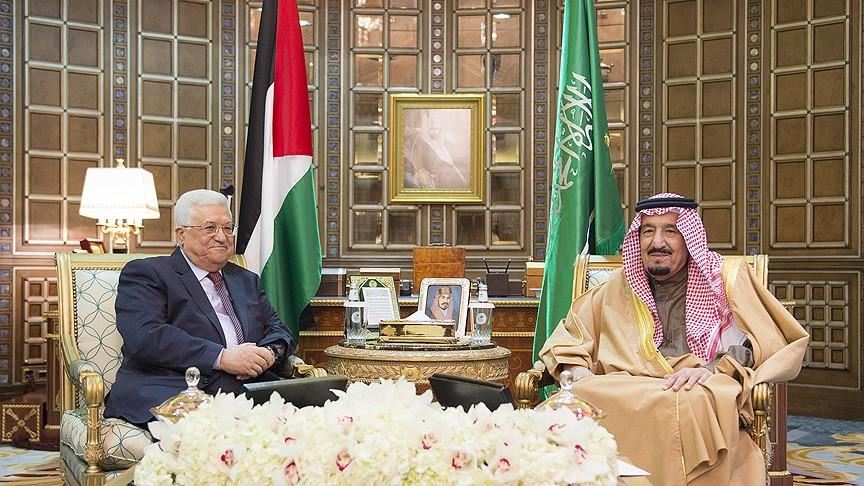
The Palestinian Authority welcomed Saudi Arabia’s first ambassador. The non-resident ambassador was welcomed in Jordan on August 12 by Majdi Al-Khalidi, the diplomatic advisor of Palestinian President Mahmoud Abbas.
Palestinian news agency Wafa reported that Saudi ambassador Nayef al-Sudairi presented a copy of his identity card to al-Khalidi, diplomatic adviser to President Abbas.
Al-Sudairi is currently serving as the Saudi ambassador to Jordan.
He will also serve as Consul General in Jerusalem.
Regarding the presentation of credentials to the diplomatic adviser of the Palestinian President, Saudi Ambassador Al-Sudairi said, “This is an important step, which will strengthen the strong brotherly relationship between the two countries, which is hindered by the two countries and the brotherly people of the two countries.”
Riyadh has traditionally handled Palestine-related documents from the Saudi embassy in Amman, the capital of Jordan.
The appointment of the ambassador comes at a time when
The US is trying to normalize relations between Saudi Arabia and Israel.
But US, Israeli and Saudi officials say reaching such an agreement will not be easy. From Israeli operations in the occupied West Bank to the development of Saudi Arabia’s nuclear power plant, the two sides are sharply at odds.
Riyadh has repeatedly said that until the end of the conflict with Palestine, it will not establish relations with Israel – the Arab League, an alliance of Arab countries, will also be adamant about this position.
However, there have been several rounds of discussions between Riyadh and Washington regarding Saudi Arabia’s conditions for normalization of relations in recent times. Topics of discussion included security assurance and support for civilian nuclear programs.
Israel’s Foreign Minister Eli Cohen said on August 10, “Peace between Israel and Saudi Arabia is a matter of time.”
But last week, Palestinian Foreign Minister Riyad al-Maliki said Palestine would raise its concerns with Saudi officials about pressure to normalize relations.
How far will Saudi Arabia go in relation to Israel?
Saudi Arabia Palestine has been an important country not only in the Middle East but also globally for many years. Oil and natural gas deposits were discovered in the country in the thirties of the last century. After the United States, Saudi Arabia has the largest underground oil reserves. Currently, the country is the largest exporter of fuel oil. One of the top 20 economies in the world is Saudi Arabia.
Before the discovery of oil resources, the common people of Saudi worked on their palm plantations. Their livelihood was mainly based on the income from the export of dates. However, after the discovery of oil fields, they are stepping on their feet, which is not entirely true. The once hard-working Saudi nation has developed a variety of industries centered on fuel oil and outside of oil. Saudi Arabia has started working on the necessary preparations if the oil resources are limited in the future. Especially since 2015, it is being worked on vigorously.
Crown Prince Mohammed bin Salman announced ‘Vision 2030’ in 2016 to make Saudi Arabia modern, liberal, business and tourism friendly. Women of that country are now able to do many things including driving a car, going to the cinema alone, and going for a walk An adult woman is allowed to live independently without the permission of her father or other male relatives. Girls can register if they want to perform Hajj in Mecca. For that, they do not need to take the permission of their male guardian
You can take other girls along if you want.
In addition to social reforms, Saudi Arabia has taken and continues to take some steps in diplomatic relations without significant changes in foreign policy, which are still under discussion. However, there is no way to know what Saudi ordinary citizens think about these things. Because the freedom of speech of the people is limited in the monarchical country.
For example, the issue of their relationship with Israel, a “one piece country” in the Middle East. Political observers say that such reform measures are in advance to prevent the Saudi monarchy from being swept away by the waves of a future ‘Arab Spring’.
Although democratic movements in Arab countries that began in 2010, dubbed the ‘Arab Spring’ by Western journalists, did not have much impact later. It has been seen that the government that was overthrown by the people’s movement, later their successors came to power.
Saudi Arabia is a place of passion for Muslims all over the world. Saudi Arabia is home to Mecca and Medina, the two holiest places in Islam. And Israel is a kind of unpleasant place for them. Because, allegedly, the state of Israel was created by occupying Arab lands. Because of that sentiment, Israel does not have formal diplomatic relations with most of the world’s Muslim countries.